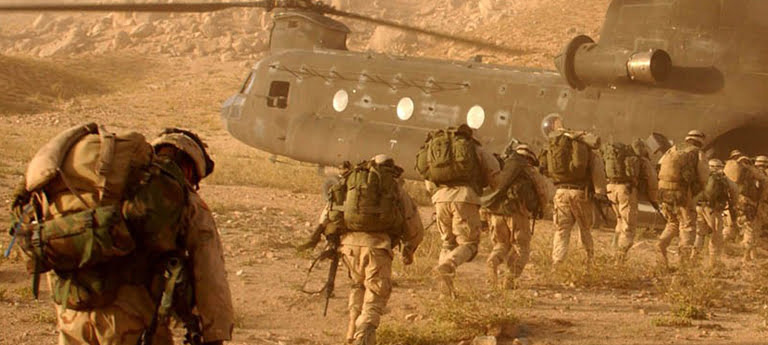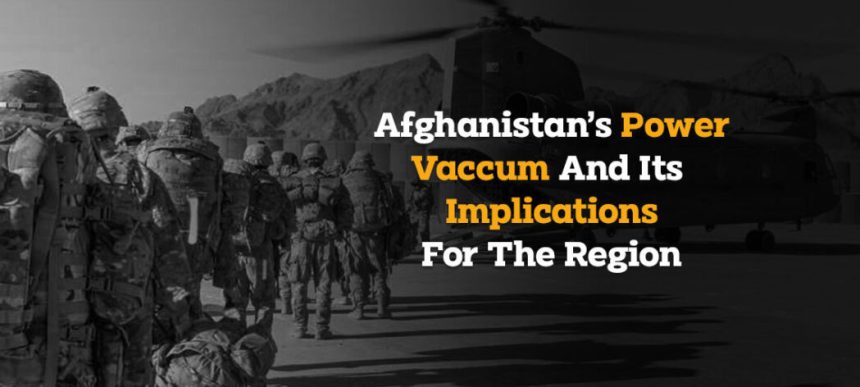As the final U.S. troops leave Afghanistan Taliban and the United States shifts its focus from the Middle East to the Indo-Pacific, there is a drive to rework the region’s foreign policy calculations. America has been the pivot around which regional politics have played out since it overtook Britain as the primary external power in the Greater Middle East half a century ago. In the region, the ancient colonial powers of Europe submitted to American leadership. Russia and China, on the other hand, aimed to undermine US dominance. Many regional players sought ties with the United States in order to protect themselves from ambitious or bothersome neighbours. Others attempted to counterbalance America. After costly and lengthy military engagements in the Middle East, the United States has realized that it will not be able to resolve centuries-old disputes in the region. Even more pertinently, the United States today has other pressing concerns, such as the threat posed by an assertive China.
President Biden will remove all American soldiers from Afghanistan in the following months, completing the military withdrawal before the 20th anniversary of the Sept. 11, 2001, terrorist attacks that brought the US into its longest war. While the Taliban has threatened to retaliate against US and NATO personnel if foreign soldiers do not leave by the deadline, it has also stated that it will not engage in “any meeting” regarding Afghanistan’s future until all “foreign forces” have left. Since last fall, the Taliban has been in stuttering discussions with the Afghan government, which began as part of the Trump accord. It was also invited to other high-level inter-Afghan talks later this month in Turkey.
Afghanistan’s neighbours are expected to unite around similar policies to deal with the aftermath of the US exit. Peace through unification or a power-sharing deal are their favoured outcomes. A Taliban that is willing to negotiate is also something that regional powers can adapt to and contain. The region’s least ideal path is for the country’s centralised authority to collapse completely, or for the Taliban to refuse to pursue normal ties and return to its pre-9/11 international attitude. As previously said, the Taliban are unlikely to accept this final decision since they do not want to provoke additional intervention from the US or other great countries.

India and Pakistan, for very different reasons, would have liked to see the US forces stay forever in Afghanistan. For Pakistan, the American military presence in Afghanistan keeps the US utterly dependent on Pakistan for geographic access and operational support. And that dependence in turn could be mobilised against India. For India, the American military presence would have kept a check on extremist forces and created conducive conditions for an Indian role in Afghanistan. But America is leaving Afghanistan. India and Pakistan will have to live with the consequences that include the triumphal return of the Taliban to power in Kabul and a boost to violent religious extremism across the region.
As the United States withdraws from the Middle East, most regional actors will require new patrons or a reduction in tensions with their neighbours. Although China and Russia have regional goals, neither has the strategic clout that America has wielded in the Middle East for decades. Turkey has realised that its ailing economy cannot support President Recep Tayyip Erdogan’s ambitious regional goals. Erdogan is extending an olive branch to Riyadh after years of opposing Saudi leadership in the Islamic world. After years of bitter rivalry, Saudi Arabia and Iran are now looking for ways to lessen bilateral tensions and regulate their regional proxy warfare. Saudi Arabia is also attempting to mend the Gulf schism by stopping the previous campaign to isolate Qatar. These reforms follow major attempts by Arab states such as the UAE, Bahrain, Morocco, and Sudan to normalise relations with Israel last year.

The termination of direct US participation in Afghanistan does not guarantee regional stability in the long run. It does, however, ensure a shift in US focus away from unwinnable battles and increasing local efforts to stabilise Afghanistan. Most regional powers will have to cope with the fallout from a US exit in some way, whether through diplomacy, military containment, or a mixture of the two. The presence of the United States in Afghanistan has a negative impact on regional relations between Afghanistan and its neighbours. Although short-term instability is likely to increase as a result of the departure, the interests of neighbouring states, some of which are strategic competitors of the United States, ensure that they will endeavour to restore some stability.
Though short-term instability is likely to increase following the withdrawal, neighbouring states’ interests, some of which are strategic competitors of the United States, ensure that they will seek to restore some type of balance to Afghanistan’s affairs. The region may return to its pre-invasion geopolitical balance, but with regional states taking a greater interest in dealing with terrorist organizations. This also means that if the necessity arises, the neighbouring countries are unlikely to object to the US maintaining some ability to strike non-state entities in the region using indirect tactics and proxies.






